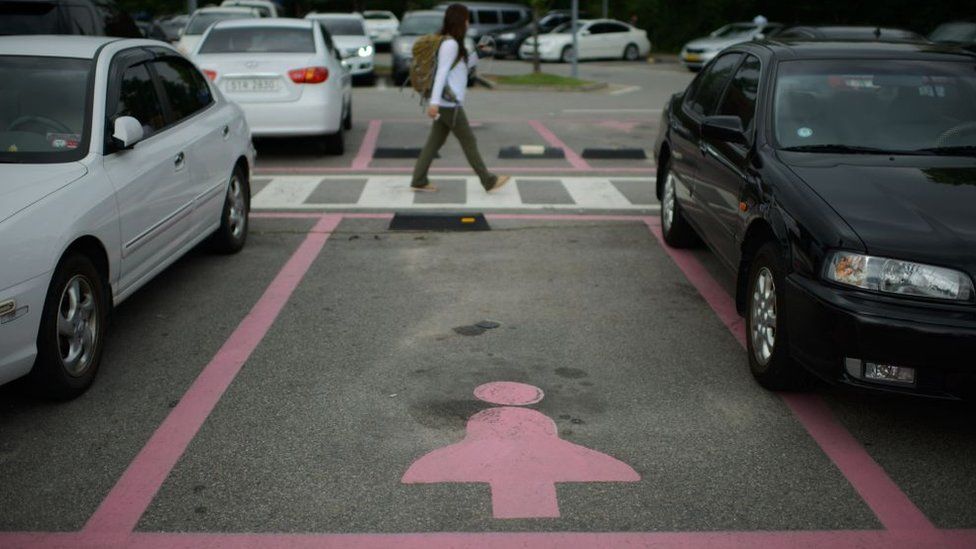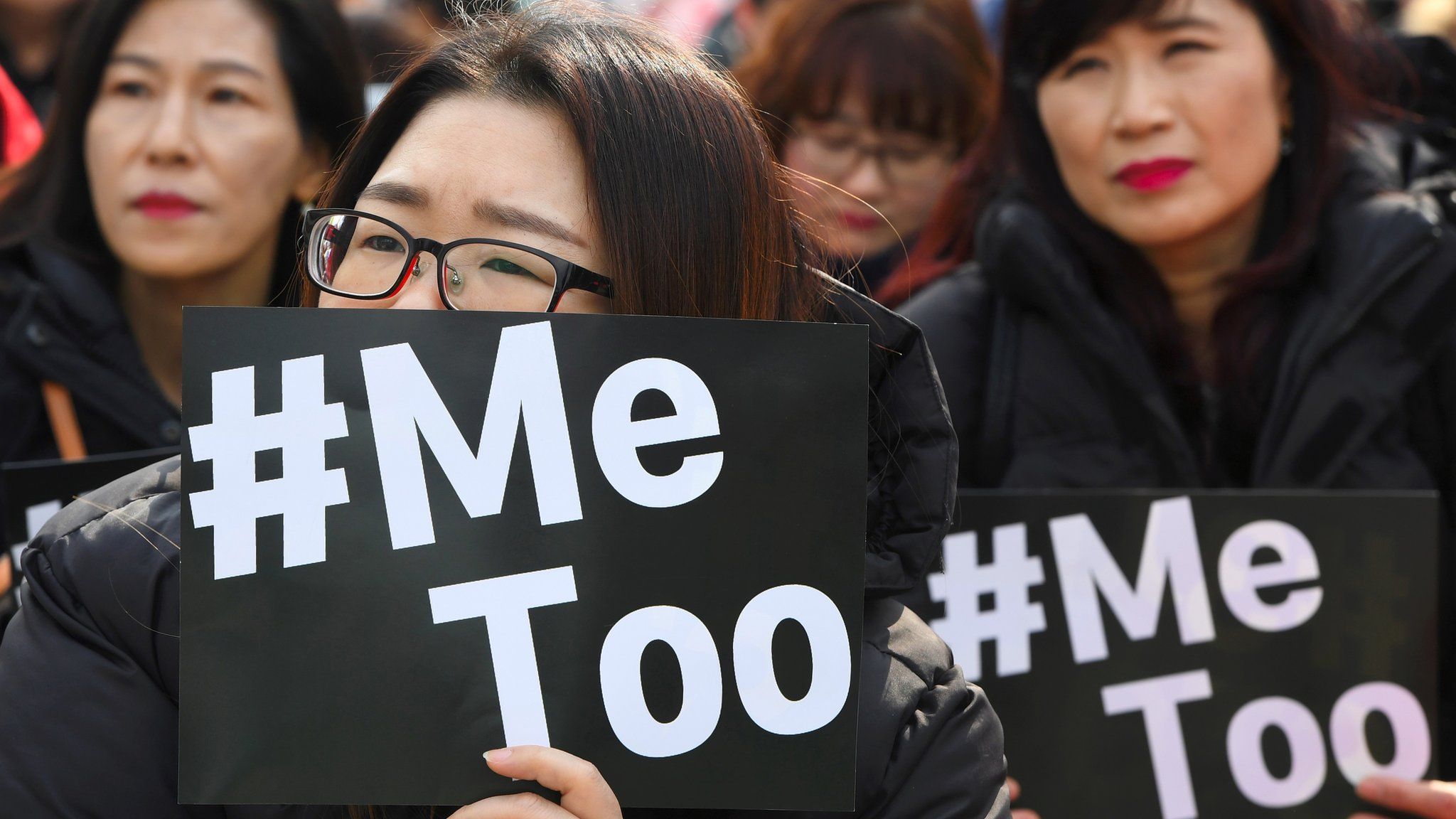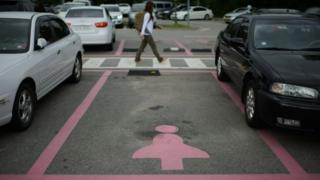
South Korea’s capital Seoul is removing women-only parking spaces, 14 years after they were introduced as a protection for women.
The women-only spots had been instated in 2009 after a spate of violent crimes in basement car parks.
But city officials say such spaces aren’t necessary anymore and will be converted to family parking spots.
Critics say their removal is just the latest example of anti-feminist policies in South Korea.
Chung Eun-jung, 55, said she uses the female spaces whenever she can find one: “I feel safer when I use them, that there are not so many dangerous people close by.”
“When I get in the car, I always lock the door immediately,” she said, adding that she was well aware of car park crimes, often reported in the news.
Her daughter said she was upset that her mother would feel less safe.
“It seems strange that they would actively get rid of something that makes women feel safe,” said 27-year-old Park Young-seo.
“They’re not that big of a deal. It is not like half the carpark is dedicated to women; it is only a few spots.”
In Seoul, which is South Korea’s largest city, car parks with more than 30 spaces were required to allocate 10% to women – just under 2,000 of the 16,640 public parking spaces were reserved for women.
They tended to be near building entrances so women wouldn’t have to walk through basements in the dark.
Government figures in 2021 showed more than two-thirds of violent crimes committed in the city’s car parks were sexual crimes: rape, sexual assault and harassment.
But Seoul Mayor Oh Se-hoon, who introduced the women-only spaces, is reversing his own policy. He has said it is time to “consider families”.
The new family spots will be made available to pregnant women or people travelling with children. The city council confirmed that women would who did not meet these criteria would not be allowed to use them.
Such a move feeds into what critics say is a culture of anti-feminism that has characterised South Korean politics over the past few years.
Men in South Korea increasingly argue that polices designed to advantage women are discriminatory.
The current government has removed the term “gender equality” from its school ethics curriculum and is trying to close its gender equality ministry.
Oh Kyung-jin from the Korean Women’s Association is disappointed the spaces are being removed but is more concerned about the wider trend.
“The government is trying to push ahead with anti-feminist policies, and now we can see these regressive policies feeding through into local governments,” she said.
But male pilot Cho Young-jae thinks the women-only spaces need to go.
“These spaces do discriminate against men”, the 34-year-old said.
“Walking 100 metres more does not make you less safe and these days parking areas are covered in surveillance cameras.”
The women-only car spaces, which were first introduced in Germany in the 1990s, have been controversial in South Korea.
As some are longer and wider, critics argued they reinforced the stereotype that women find it more difficult to park. The actual reason they are bigger is because it was assumed that women, who take on most of the childcare in South Korea, would appreciate the extra space to get their children in and out of the car.
The city government plans to start converting the spaces at the end of March.
Related Topics
-
-
10 August 2021

-
-
-
26 March 2018

-

